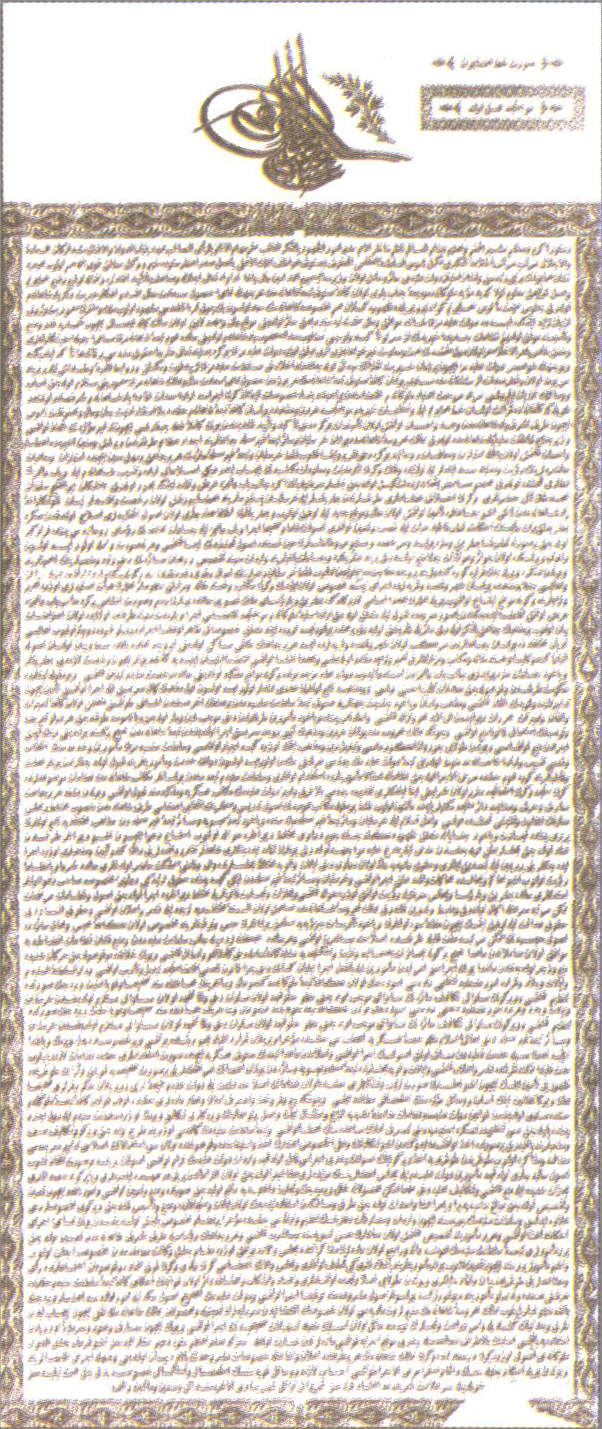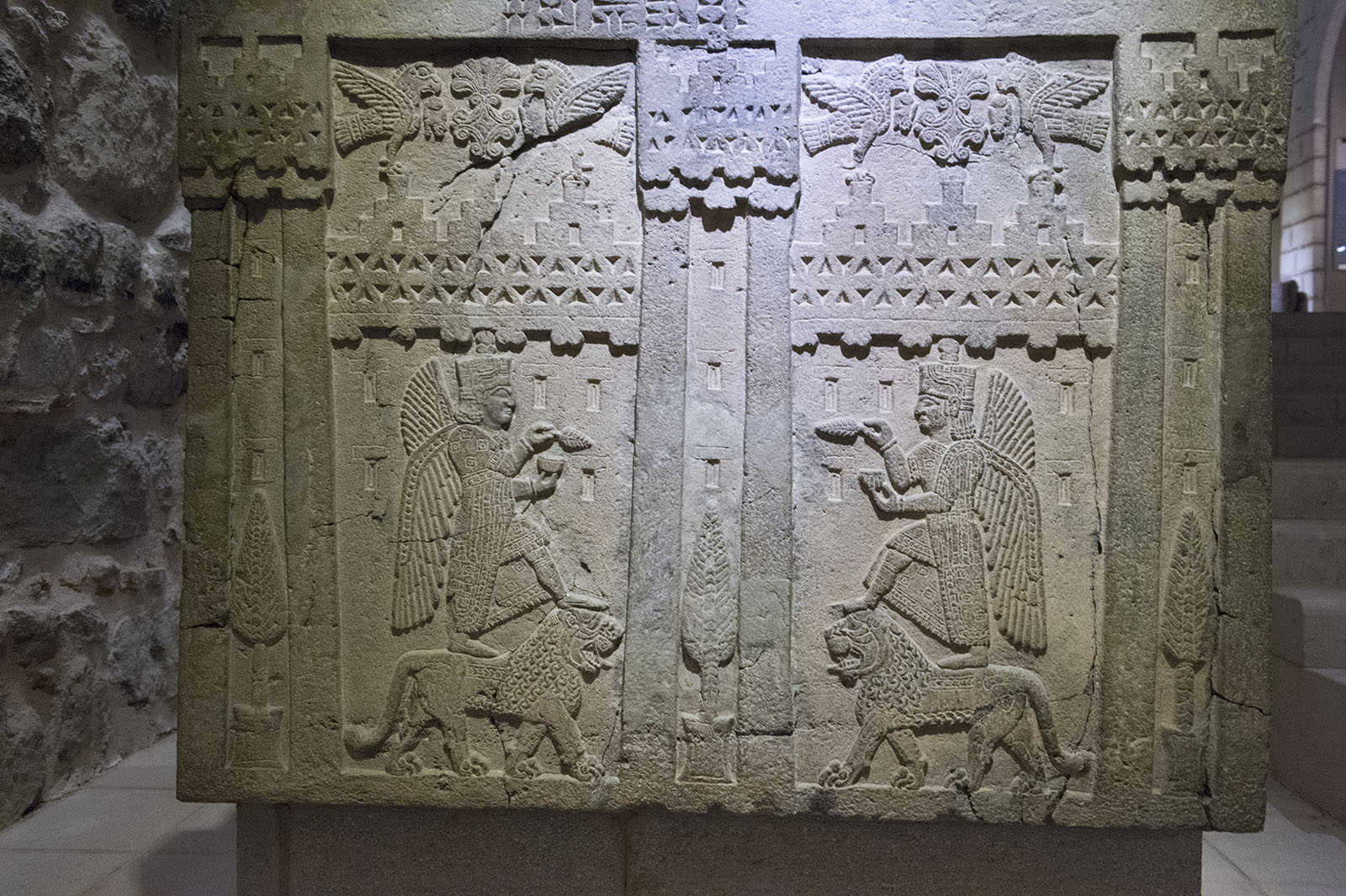|
Bedr Khan Beg
Bedir Khan Beg (Kurmanji: ''Bedirxan Beg'', tr, Bedirhan Bey; 1803–1869) was the last Kurdish Mîr and mütesellim of the Emirate of Botan. Hereditary head of the house of Rozhaki whose seat was the ancient Bitlis castle and descended from Sharafkhan Bidlisi, Bedir Khan was born in Cizre (now in Turkey). He became the Mir of the Emirate of Botan in 1821 and ruled until 1847. The Bedir Khans also claimed descent from Khalid Ibn al Walid, a General called the ''Sword of Allah'' by prophet Mohammed. Early life He was born to Abdullah Bey, and became the ruler of Botan after his cousin Seyfeddin, (who succeeded Abdullah Bey after his death) wasn't able to calm down the region and his brother Said Bey was too religious and left the leadership to Bedir Khan. During his first term as Mir, he soon established a regional control strong enough, that allowed him to deny his support to the Ottoman Sultan during the Russo-Turkish War between 1828 and 1829. He managed to develop the wa ... [...More Info...] [...Related Items...] OR: [Wikipedia] [Google] [Baidu] |
Cizre
Cizre (; ar, جَزِيْرَة ٱبْن عُمَر, Jazīrat Ibn ʿUmar, or ''Madinat al-Jazira'', he, גזירא, Gzira, ku, Cizîr, ''Cizîra Botan'', or ''Cizîre'', syr, ܓܙܪܬܐ ܕܒܪ ܥܘܡܪ, Gāzartā,) is a city in the Cizre District of Şırnak Province in Turkey. It is located on the river Tigris by the Syria–Turkey border and close to the Iraq–Turkey border. Cizre is in the historical region of Upper Mesopotamia and the cultural region of Turkish Kurdistan. The city had a population of 130,916 in 2021. Cizre was founded as Jazirat Ibn ʿUmar in the 9th century by Taghlib#Abbasid period, al-Hasan ibn Umar, List of rulers of Mosul, Emir of Mosul, on a manmade island in the Tigris. The city benefited from its situation as a river crossing and port in addition to its position at the end of an old Roman road which connected it to the Mediterranean Sea, and thus became an important commercial and strategic centre in Upper Mesopotamia. By the 12th century, it ha ... [...More Info...] [...Related Items...] OR: [Wikipedia] [Google] [Baidu] |
Edict Of Gülhane
The Gülhane Hatt-ı Şerif ("Supreme Edict of the Rosehouse"; french: Hatti-Chérif de Gulhané) or Tanzimât Fermânı ("Imperial Edict of Reorganization") was a proclamation by Ottoman Sultan Abdülmecid I in 1839 that launched the Tanzimât period of reforms and reorganization in the Ottoman Empire. The 125th anniversary of the edict was depicted on a former Turkish postcard stamp. The proclamation was issued at the behest of reformist Grand Vizier Mustafa Reşid Pasha. It promised reforms such as the abolition of tax farming, reform of conscription, and guarantee of rights to all Ottoman citizens regardless of religion or ethnic group. The goal of the decree was to help modernize the empire militarily and socially so that it could compete with the Great Powers of Europe. It also was hoped the reforms would win over the disaffected parts of the empire, especially in the Ottoman controlled parts of Europe, which were largely Christian. At the time of the edict, millets (i ... [...More Info...] [...Related Items...] OR: [Wikipedia] [Google] [Baidu] |
Nestorianism
Nestorianism is a term used in Christian theology and Church history to refer to several mutually related but doctrinarily distinct sets of teachings. The first meaning of the term is related to the original teachings of Christian theologian Nestorius (d. 450), who promoted specific doctrines in the fields of Christology and Mariology. The second meaning of the term is much wider, and relates to a set of later theological teachings, that were traditionally labeled as Nestorian, but differ from the teachings of Nestorius in origin, scope and terminology. The ''Oxford English Dictionary'' defines Nestorianism as "The doctrine of Nestorius, patriarch of Constantinople (appointed in 428), by which Christ is asserted to have had distinct human and divine persons." Original Nestorianism is attested primarily by works of Nestorius, and also by other theological and historical sources that are related to his teachings in the fields of Mariology and Christology. His theology was influ ... [...More Info...] [...Related Items...] OR: [Wikipedia] [Google] [Baidu] |
1843 And 1846 Massacres In Hakkari
A series of massacres in Hakkari in the years 1843 and 1846 of Assyrians were carried out by the Kurdish emirs of Bohtan and Hakkari, Bedr Khan Bey, Nurullah. The massacres resulted in the killing of more than 10,000 Assyrians and the captivity of thousands of others. Background Ottoman affairs By the 19th century, the weakened Ottoman Empire had started losing control over Upper Mesopotamia and Kurdistan. The empire seemed on the brink of collapse when Muhammad Ali revolted in Egypt and took control of Syria. It was then that Kurdish Emirs found an opportunity to assert their independence. Among them was Ibrahim Pasha, a Kurdish Emir whose dominion included a region extending from Diyarbakır to Aleppo, and who fought alongside Muhammad Ali against the Ottomans and their allies from the Shammar tribe in Jazira. Despite the failure of Muhammad Pasha in his Syrian campaign, the events showed the vulnerability of the Ottomans and encouraged Kurdish aghas to try and increase the ... [...More Info...] [...Related Items...] OR: [Wikipedia] [Google] [Baidu] |
Bitlis
Bitlis ( hy, Բաղեշ '; ku, Bidlîs; ota, بتليس) is a city in southeastern Turkey and the capital of Bitlis Province. The city is located at an elevation of 1,545 metres, 15 km from Lake Van, in the steep-sided valley of the Bitlis River, a tributary of the Tigris. The local economy is mainly based on agricultural products which include fruits, grain and tobacco. Industry is fairly limited, and deals mainly with leatherworking, manufacture of tobacco products as well as weaving and dyeing of coarse cloth. Bitlis is connected to other urban centres by road, including Tatvan on Lake Van, 25 km to the northeast, and the cities of Muş (Mush), 100 km northwest, and Diyarbakır, 200 km to the west. The climate of Bitlis can be harsh, with long winters and heavy snowfalls. Summers are hot, and often humid. Since the local elections of March 2019, the Mayor of Bitlis is Nesrullah Tanğlay. History Ancient and medieval The origin of the name Bitlis is not ... [...More Info...] [...Related Items...] OR: [Wikipedia] [Google] [Baidu] |
Mosul Eyalet
Mosul Eyalet ( ar, إيالة الموصل; ota, ایالت موصل, Eyālet-i Mūṣul) was an eyalet of the Ottoman Empire. Its reported area in the 19th century was . The eyalet was largely inhabited by Kurds. Playfair, James (1813)A System of Geography: Ancient and Modern Peter Hill. History Sultan Selim I defeated the army of Shah Ismail at the Battle of Çaldiran, but it wasn't until 1517 that Ottoman armies gained control of Mosul, which remained a frontier garrison city until the 1534 capture of Baghdad. The eyalet was established in 1535. Mosul then became one of three Ottoman administrative territorial units of ‘Irāk. In the 1840s, the Sanjak of Cizre, which before was a part of the Emirate of Bohtan in the Diyarbekir Eyalet, was added to the Mosul Eyalet, which led to an unsuccessful Kurdish revolt against the Ottoman Empire, led by Bedir Khan Beg. Administrative divisions Sanjaks of Mosul Eyalet in the 17th century: # Sanjak of Bajwanli # Sanjak of Tekrit # San ... [...More Info...] [...Related Items...] OR: [Wikipedia] [Google] [Baidu] |
Diyarbekir Eyalet
Eyālet-i Diyār-i Bekr , common_name = Eyalet of Diyarbekir , subdivision = Eyalet , nation = the Ottoman Empire , year_start = 1515 , year_end = 1846 , date_start = November 4, 1515II. Uluslar Arası Osmanlı'dan Cumhuriyet'e Diyarbakır Sempozyumu (Türkçe). Diyarbakır Valiliği ve TOBB ETÜ Fen-Edebiyat Fakültesi. II. International Symposium on the Ottoman Empire Republic of Diyarbakir TOBB ETU Diyarbakir Governor's Office and the Faculty of Arts and Sciences. , date_end = , event_start = , event_end = , p1 = Safavid Diyarbakr , flag_p1 = Flag of Shah Tahmasp I.svg , p2 = , flag_p2 ... [...More Info...] [...Related Items...] OR: [Wikipedia] [Google] [Baidu] |
Emirate Of Hakkâri
The Emirate of Hakkâri () was a Kurdish emirate centered around the city of Hakkâri, and to the west of Lake Urmia on the border with Iran, which ruled a wide variety of peoples. At the height of its power, the emirate controlled parts of Turkish provinces of Hakkari, and Van, along with some areas in northern Iraq. The population was heterogeneous, with pastoral Kurdish tribes, Nestorian Assyrian Christians who were vassals of the Kurdish tribes, and settled Armenian farmers. The emirate did not have control or jurisdiction over the independent Assyrian tribes of Tyari, Baz, Jilu, Tkhouma, and Diz which were known as ashirets, or free men. The emirate lasted from the 14th century until 1845, when internal disputes resulted in it briefly coming under the patronage of the last Kurdish Emirate of Botan, led by Bedir Khan Beg. Eventually both were absorbed into the Ottoman Empire following the Tanzimat reforms which reorganised and centralised the state. History Already estab ... [...More Info...] [...Related Items...] OR: [Wikipedia] [Google] [Baidu] |
Han Mahmud
Han Mahmud (Khan Mahmud) was a 19th-century Kurdish Lord. He was born in Müküs (now in Van, Turkey), and after his father Abdi Beg's death, he became Mir of the Kurdish Emirate of Müküs In 1843 and 1846 he fought within an alliance with Bedir Khan Beg from Cizre Botan from and Nurullah Beg from Hakkari against the christian Nestorians. The massacres caused by the alliance, raised concerns around the foreign christian missionaries and later were harshly criticized by diplomats from Europe and the United States. The Ottomans then tried to compel the alliance to surrender but the Ottomans were not persuasive enough. The Ottomans then fought the Kurdish alliance and Han Mahmoud lost his post in 1946Suavi, Verheij; Jongerden, Verheij (ed.), (2012), pp. 37–38 and was exiled to Rousse (now a Bulgaria Bulgaria (; bg, България, Bǎlgariya), officially the Republic of Bulgaria,, ) is a country in Southeast Europe. It is situated on the eastern flank of the Balkans, ... [...More Info...] [...Related Items...] OR: [Wikipedia] [Google] [Baidu] |
Cambridge University
, mottoeng = Literal: From here, light and sacred draughts. Non literal: From this place, we gain enlightenment and precious knowledge. , established = , other_name = The Chancellor, Masters and Scholars of the University of Cambridge , type = Public research university , endowment = £7.121 billion (including colleges) , budget = £2.308 billion (excluding colleges) , chancellor = The Lord Sainsbury of Turville , vice_chancellor = Anthony Freeling , students = 24,450 (2020) , undergrad = 12,850 (2020) , postgrad = 11,600 (2020) , city = Cambridge , country = England , campus_type = , sporting_affiliations = The Sporting Blue , colours = Cambridge Blue , website = , logo = University of Cambridge logo ... [...More Info...] [...Related Items...] OR: [Wikipedia] [Google] [Baidu] |
Jumu'ah
In Islam, Friday prayer or Congregational prayer ( ar, صَلَاة ٱلْجُمُعَة, ') is a prayer ('' ṣalāt'') that Muslims hold every Friday, after noon instead of the Zuhr prayer. Muslims ordinarily pray five times each day according to the sun's sky path regardless of time zones. ''Jumu’ah'' means Friday in the Arabic language. In many Muslim countries, the weekend is inclusive of Fridays, while in others, Fridays are half-days for schools and some workplaces. Meaning It is one of the most exalted Islamic rituals and one of its confirmed obligatory acts. Obligation There is consensus among Muslims regarding the Friday prayer (''salat al-jum‘ah'') being ''wajib'' - required - in accordance with the Quranic verse, as well as the many traditions narrated both by Shi’i and Sunni sources. According to the majority of Sunni schools and some Shiite jurists, Friday prayer is a religious obligation, but their differences were based on whether its obligation is condi ... [...More Info...] [...Related Items...] OR: [Wikipedia] [Google] [Baidu] |




